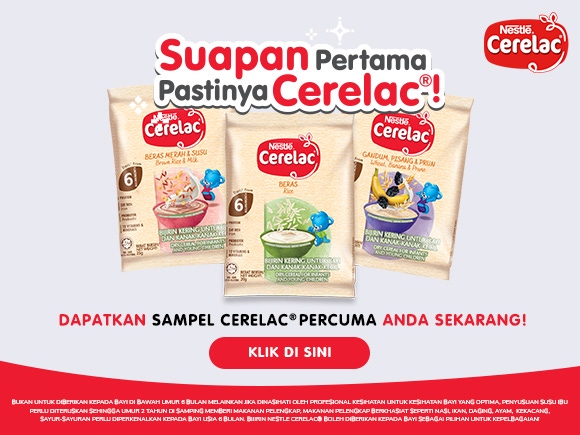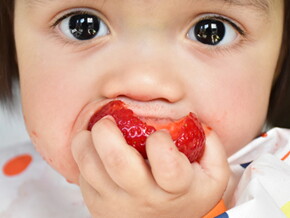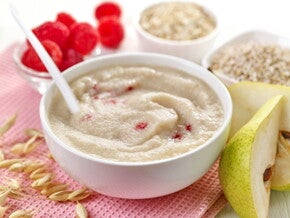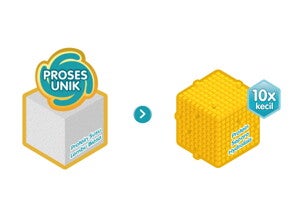
The significance of Probiotic Cultures (Bifidobacterium lactis) in Child Food
As your little one embarks on their culinary journey, it's important to understand the role of probiotic cultures, specifically Bifidobacterium lactis, in child food. The importance in a child's first spoon is immense. These beneficial bacteria significantly contribute to your child's overall health and wellness from their very first taste of solid food. They stimulate the growth of beneficial bacteria, improve digestion, and promote nutrient absorption.
Just like choosing the best probiotic in Malaysia for adults, picking the right probiotic cultures for your child is critical. Go for products specially formulated for kids that contain Bifidobacterium lactis -- a strain known for its positive impact on gut health.
Unraveling the Mystery of Probiotic Cultures
Probiotic cultures are friendly live bacteria and yeasts that nurture a healthy gut. They're typically found in certain foods and supplements, including child food products. In child food, probiotic cultures like Bifidobacterium lactis are vital. They support a child's overall health and well-being from their very first spoonful, emphasizing the importance of probiotics for a child's gut health.
Probiotic cultures significantly contribute to gut health. The gut microbiota, made up of microorganisms, plays a key role in digestion, immune function, and nutrient absorption. Probiotic cultures help maintain a diverse and balanced gut microbiota, crucial for a child's healthy growth and development.
Incorporating probiotic cultures into a child's diet can be beneficial. These cultures boost the immune system, strengthen a child's natural defenses, and lower the risk of common infections. They also aid in the digestion of food, enhance nutrient absorption, and minimize digestive issues. Probiotic cultures can also help regulate bowel movements, reducing constipation or diarrhea in children. By maintaining a healthy gut, they contribute to overall well-being and may even support cognitive development.
Choosing the Right Probiotic Cultures for Your Child
As with choosing the best probiotics in Malaysia for adults, picking the right probiotic cultures for your child's nutrition is crucial. Probiotics, such as Bifidobacterium lactis, play a significant role in supporting your child's digestive health and immune system.
Bifidobacterium lactis can help regulate bowel movements and improve gut health in children. It also enhances the absorption of nutrients, ensuring your child reaps maximum benefits from their food.
When choosing probiotic cultures for your child's food, consider the safety and suitability of the strains for their age. Look for child-friendly formulations that are easy to consume and integrate into your child's diet. Probiotics are available in various forms, such as powders, drops, or even added to specific food products.
It's advisable to consult with a pediatrician or a healthcare professional to determine the appropriate dosage and timing. Including probiotic cultures in your child's first spoonful of solid food can be a fantastic start to their digestive health journey. Start with a small amount and gradually increase as recommended by your healthcare provider.
Here at Nestle, we understand the importance of probiotic cultures in your child's diet. Our range of child food products, including those containing Bifidobacterium lactis, are carefully formulated to provide the right balance of nutrients and support your child's overall well-being.

How Probiotic Cultures Impact Your Child's Digestive System
Probiotic cultures, specifically Bifidobacterium lactis, are essential in maintaining a healthy gut microbiota in children. These microorganisms, including beneficial and potentially harmful bacteria, significantly affect our health.
Probiotic cultures positively influence digestion and nutrient absorption. They break down complex carbohydrates, proteins, and fats, making them easier for the body to digest and absorb. This enhanced digestion and nutrient absorption contribute to better overall health and growth in children.
Besides aiding digestion, probiotic cultures also play a role in reducing gastrointestinal discomfort in children. They maintain a balanced gut microbiota, alleviating symptoms such as bloating, gas, and constipation. By promoting a healthy gut environment, probiotic cultures can support your child's digestive system and help prevent gastrointestinal issues.
Introducing Probiotic Cultures in Your Child's First Spoonful
Introducing probiotic cultures, specifically Bifidobacterium lactis, in your child's diet can significantly benefit their overall health and well-being. These beneficial bacteria support your child's digestive and immune systems, making them an essential addition to their first spoonful of solid food.
Always consult with your pediatrician before introducing any new food to your child.
There are various methods to incorporate probiotic cultures in your child's food. One way is to choose baby foods especially infant cereals which is fortified with Bifidobacterium lactis. Look for labels that indicate the presence of probiotics or Bifidobacterium lactis. Another method is to introduce yogurt or fermented foods that contain Bifidobacterium lactis.
When introducing probiotic cultures to your child, ensure a smooth transition. Start by offering small amounts of probiotic-rich foods and gradually increase the quantity. You can also mix these foods with familiar flavors to make them more appealing to your child's taste buds. Be patient and persistent in offering probiotic-rich foods, considering the long-term health benefits for your child.
Safety Measures for Using Probiotic Cultures in Child Food
When choosing probiotic cultures for your child's food, prioritize reputable brands and quality assurance. Select brands with a proven record of producing safe and effective probiotics. These brands are more likely to follow strict manufacturing processes and quality control measures.
Always check for quality assurance certifications on the packaging. These certifications, such as Good Manufacturing Practices (GMP), indicate that the brand meets industry standards for quality and safety.
While probiotic cultures offer numerous benefits, be aware of possible side effects and monitor your child's response. Some children may experience mild digestive discomfort when first introduced to probiotics. If you notice any adverse reactions, consult with a healthcare professional.
Monitoring your child's response to probiotics is vital. Pay attention to any changes in their bowel movements, digestion, or overall well-being. If you notice any persistent or severe symptoms, seek medical advice immediately.
Lastly, consulting with a healthcare professional before incorporating probiotic cultures into your child's diet is advisable. They can provide guidance based on your child's specific needs and health condition.
The Promising Future of Probiotic Cultures in Child Nutrition
Ongoing research in probiotic cultures for child health has led to exciting advancements in child nutrition. Probiotics, such as Bifidobacterium lactis, show promising results in promoting children's health and well-being.
Researchers are exploring new formulations and delivery methods to maximize the effectiveness of probiotic cultures in child food. This involves innovative ways to ensure that probiotics reach the child's digestive system alive and in sufficient quantities.
Probiotic cultures can play a significant role in preventing common childhood ailments. Studies show that probiotics can strengthen the immune system, reduce the risk of respiratory infections, and alleviate digestive issues.
For a child's first spoonful of food, the inclusion of probiotic cultures can have lasting benefits. These cultures help establish a healthy gut microbiome early on, setting the stage for a lifetime of good health.
We recognize the importance of probiotic cultures in child nutrition. Our range of products includes Bifidobacterium lactis, a probiotic culture that supports a child's digestive health. We are committed to providing parents with high-quality, nutritious options that prioritize their child's well-being.
Discover the vital role of probiotic cultures, like Bifidobacterium lactis, in supporting your child's digestive health and overall well-being. From their first taste of solid food, these beneficial bacteria contribute to a healthy gut microbiota, aiding digestion, enhancing nutrient absorption, and bolstering the immune system. Our products are carefully formulated to include probiotic cultures, ensuring your child receives the essential support they need for optimal growth and development.
Cerelac infant cereal is a specially formulated cereal designed for your little one. It is a nutritious and easily digestible food option that helps introduce solid foods into their diet.
Cerelac is packed with vitamins, minerals, and essential proteins, all carefully balanced to support your little one's overall well-being.
The goodness in each bowl makes CERELAC a mother’s choice.


























